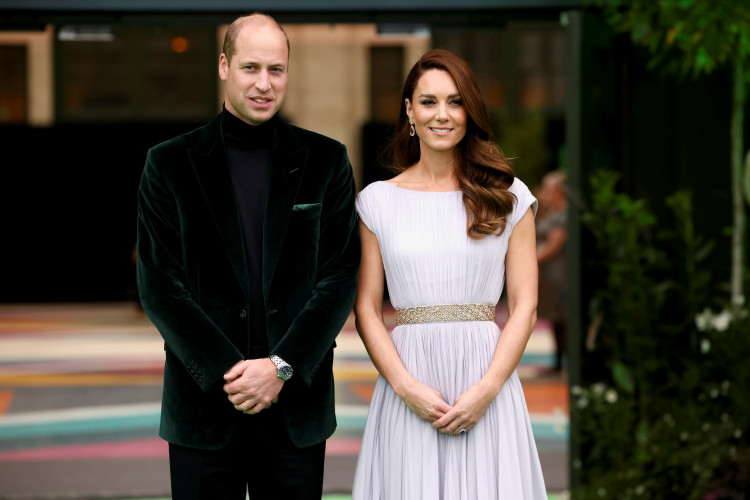Prince William visited British troops stationed near the Russian border in Estonia on Friday, marking a key solo engagement as speculation swirled over the dynamic within the royal household. The Prince of Wales' appearance at Tapa military base came amid fresh claims that his wife, Princess Kate Middleton, treats him "like a fourth child" to manage his reported temper.
The 43-year-old heir to the throne donned full British Army uniform during his visit, underscoring Britain's continued support for NATO allies in Eastern Europe. Approximately 900 U.K. troops are deployed to Estonia and Poland under Operation Cabrit, a mission initiated following Russia's invasion of Ukraine in 2022.
While at the Tapa camp, located roughly 125 miles from the Russian border, William inspected military vehicles, observed trench clearance exercises, and participated in a handover ceremony for the Royal Dragoon Guards, who completed their deployment. He was also photographed playing pool with soldiers.
Writing on X, William stated: "From field training to weapon systems operation, this deployment is key! So brilliant to see the dedication and expertise of our troops in action."
The royal visit coincided with increased scrutiny over William's personal temperament and his relationship with the Princess of Wales. Royal author Tom Quinn, promoting his new book Yes, Ma'am: The Secret Life of Royal Servants, claimed palace staff have long joked that Kate Middleton treats her husband as if he is their "fourth child."
"Occasionally, William has little tantrums and irritations if things aren't done the way he wants them done," Quinn told Fox News Digital. "But Kate is very good at managing that in the same way that she manages the tantrums of their three children - Prince George, Princess Charlotte, and Prince Louis. And so, there's a joke among the staff that Kate treats William as the fourth because he occasionally behaves like one."
One staffer quoted in Quinn's book remarked, "I don't know where William would be without Kate - she hasn't had everything done for her throughout her life, so she calms him down when he gets a bit fractious. She says he sometimes has to be treated as her fourth child."
Other palace insiders cited in the book described both William and his father, King Charles III, as "prone to tantrums" and "very picky," traits attributed to a lifetime of being waited on. One former staff member noted, "People who have everything done for them from childhood tend to be rather spoiled and prone to bouts of irritation because they have no idea how much work is involved in washing and ironing, polishing and sewing when they have never done any of it themselves."
Quinn also explored the royal couple's contrasting backgrounds, emphasizing how Kate's upbringing in a non-royal household influenced her hands-on parenting style and her ability to manage palace pressures. "In many ways, William has had an emotionally damaging childhood," Quinn stated. "Before that, the split between his parents was very public... he was looked after by paid staff."
Kate reportedly drew on her close-knit family experience to offer stability, with Quinn asserting that William was drawn to her family's warmth and emotional awareness. The book also claims Kate pushed back against certain royal traditions, including "blooding," the practice of smearing blood from an animal kill on royal children's faces during hunting rites.
"Catherine, Princess of Wales, has put her foot down and insisted there will be no blooding for her children," Quinn wrote, adding that the king himself and both princes experienced the ritual in their youth.
The Princess of Wales' influence reportedly extended beyond child-rearing. Quinn described how Kate learned to navigate royal protocols early on, including fashion expectations. He recounted an instance when Prince William critiqued one of her outfits, joking she looked as if she had "run through a charity shop covered in superglue."
Despite initial resistance from senior courtiers, palace staff told Quinn that Kate earned their respect over time. "Kate was always happy to accept advice, both from the lower staff, with whom she got on very well, and from the more senior courtiers," a former Kensington Palace member said.






